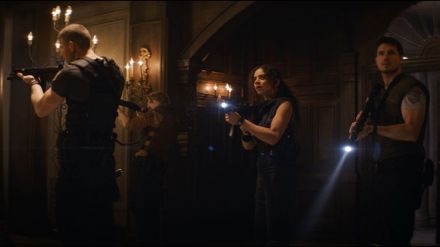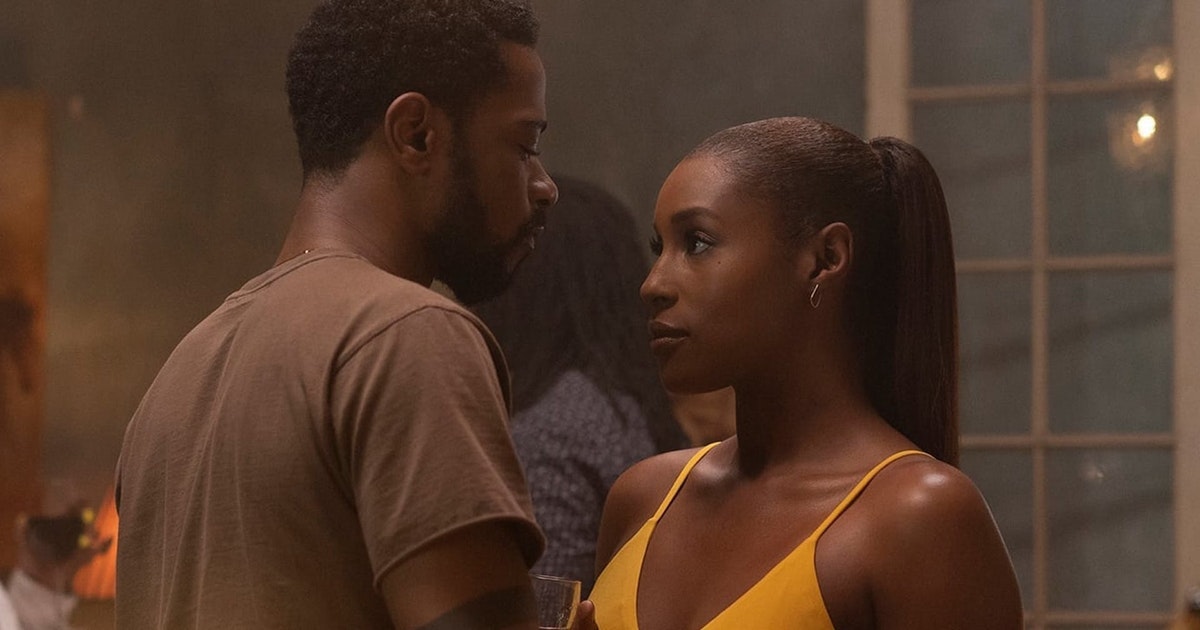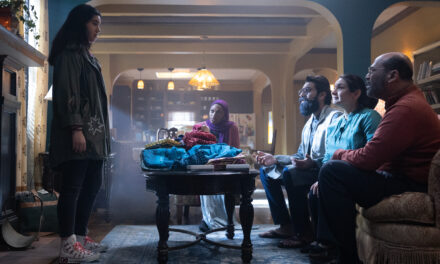Right from the start, you see that Bunny King (Essie Davis) is dealt a significantly bad hand of circumstances. By day, she takes to the interstate to clean car windshields for money. After a day’s work, she retreats to the house of her sister- and brother-in-law to crash on their couch until she finds a place of her own. At the center of this are her two children who are currently in foster care. As these programs would entail, Bunny has to show that she has her own residence and way to support herself. The Justice of Bunny King opens with a supervised visit. Director Gaysorn Thavatt presents the heavy circumstances first. Bunny’s daughter has a birthday coming up, and she wants to do everything in her power to make it special. Even though caseworker Ai Ling (Xana Tang) keeps things at a distance, Bunny will go to any lengths to make things right.
The Justice of Bunny King presents an intriguing question entangling motherhood and the government systems that are supposed to make things easier. Hence, there’s an exploration of Bunny’s character, and the pressure that comes with being held to the underclass. Her niece, Tonya (Thomasin McKenzie) comes up against a distinct set of grave circumstances involving her father. The movie turns its scope, showing Bunny in the light of going up against difficult odds and almost a savior. The film contains two women from different eras within environments that have failed them both. It’s Bunny’s optimism, however fleeting and unrealistic it may seem, that carries them through. Davis’s larger personality and McKenzie’s more subdued portrayal of Tonya evens each other out.
No matter how heavy the circumstance, Thavatt and Davis work together to inject some charm and hope into Bunny’s overall aura. She has her moments of hopelessness, but finds a quick smile to push her way through. It’s a critique of the grind-it-out nature of society as a whole. You can’t vilify poorer people for their actions to survive and then make it insanely difficult for them to climb the rungs of the ladder. There’s a part in the film where Bunny is able to cleverly make her way into a night of staying in a luxury apartment. One where she brings Tonya to as a safe haven. The Justice of Bunny King gives you a taste of what the light at the end of the tunnel can feel for Bunny. Unfortunately, there are always situations out of her control that rip those away from her. The desperation stemming from one promise goes into something even deeper.
Many will remember Essie Davis from her portrayal as a grief-stricken mother fighting off supernatural forces from 2014’s The Babadook. She brings a certain pinch of charm and confidence to Bunny’s character. No matter how bad things get, it’s Bunny’s ingenious nature that makes you root for her. Some problems are completely out of her control. There is a lot of red tape from a social services standpoint that makes her jump through hoops for her children. Others may be of her own doing. Then again, it’s a mother who is willing to do whatever it takes to reunite her family.
Screenwriter Sophie Henderson (with some additional input from Gregory King and Thavatt) doesn’t create a film that relentlessly piles on issues to the characters within it. They are within reason of the narrative and feel very tangible. The somewhat darker color tones of The Justice of Bunny King will make you feel the sky is falling. (In some ways, it does). Especially around the third act, when Bunny’s actions get her into a substantial amount of trouble. We have seen the closing scenario in other dramas, but thankfully, Justice‘s how yields more power as a deviation. While it’s a quick film, it’s an emotionally gripping portrait that raises valid questions. Bunny King desires to protect and enjoy the lives that she holds dear. That alone is something to root for above all else.













